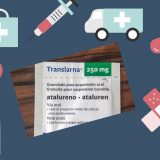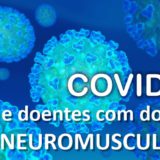Epicatequina diminui o stress oxidativo e melhora as alterações musculares de camundongos com distrofia tipo cinturas
Mexico – epicatequina é uma substância natural presente no chá verde que tem sido testada em vários modelos experimentais de doença muscular. Neste experimento utilizando camundongos com deficiência de delta sarcoglicano os autores observaram redução do stress oxidativo. O coração e os músculos esqueléticos apresentaram redução da fibrose. Além disso houve melhora da força muscular.
O resumo em inglês pode ser lido abaixo:
(FEBS Journal, 2014) (-)-Epicatechin Improves Mitochondrial Related Protein Levels And Ameliorates Oxidative Stress In Dystrophic Delta Sarcoglycan Null Mouse Striated Muscle
Israel Ramirez-Sanchez, Sergio De los Santos, Silvia Gonzalez-Basurto, Patricia Canto, Patricia Mendoza-Lorenzo, Carlos Palma-Flores, Guillermo Ceballos-Reyes, Francisco Villarreal, Alejandro Zentella-Dehesa and Ramon Coral-Vazquez
Muscular dystrophies (MD) are a group of heterogeneous genetic disorders characterized by progressive striated muscle wasting and degeneration. Although the genetic basis for many of these disorders has been identified, the exact mechanism for disease pathogenesis remains unclear. The presence of oxidative stress (OS) is known to contribute to the pathophysiology and severity of the MD. Mitochondrial dysfunction is observed in MD and likely represents an important determinant of increased OS. Experimental antioxidant therapies have been implemented with the aim of protecting against disease progression, but results from clinical trials have been disappointing. In this study, we explored the capacity of the cacao flavonoid (-)-epicatechin (Epi) to mitigate OS by acting as a positive regulator of mitochondrial structure/function endpoints and redox balance control systems in skeletal and cardiac muscles of dystrophic, δ-sarcoglycan (δ-SG) null mice. Wild type or δ-SG null 2.5 month old male mice were treated via oral gavage with either water (control animals) or Epi (1 mg/kg, twice/day) for 2 weeks. Results evidence a significant normalization of total protein carbonylation, recovery of reduced/oxidized glutathione (GSH/GSSG ratio) and enhanced superoxide dismutase 2, catalase and citrate synthase activities with Epi treatment. These effects were accompanied by increases in protein levels for thiolredoxin, glutathione peroxidase, superoxide dismutase 2, catalase and mitochondrial endpoints. Furthermore, we evidence decreases in heart and skeletal muscle fibrosis, accompanied with an improvement in skeletal muscle function with treatment. These results warrant the further investigation of Epi as a potential therapeutic agent to mitigate MD associated muscle degeneration.



